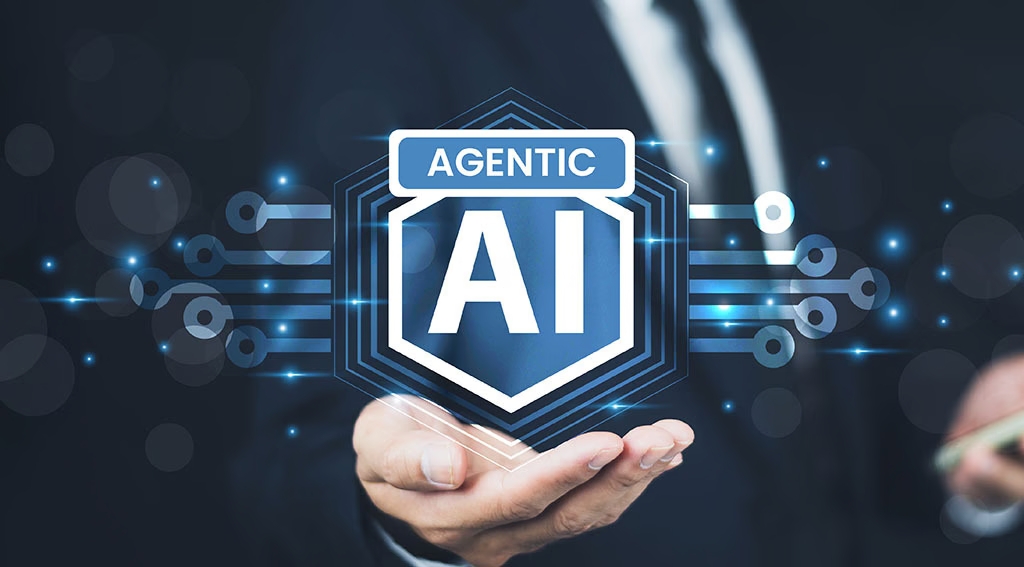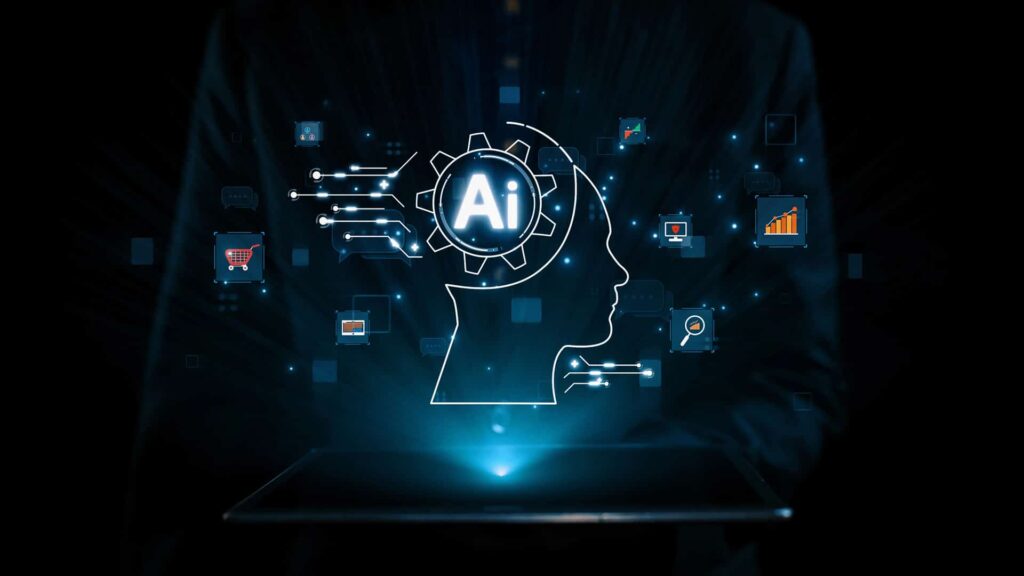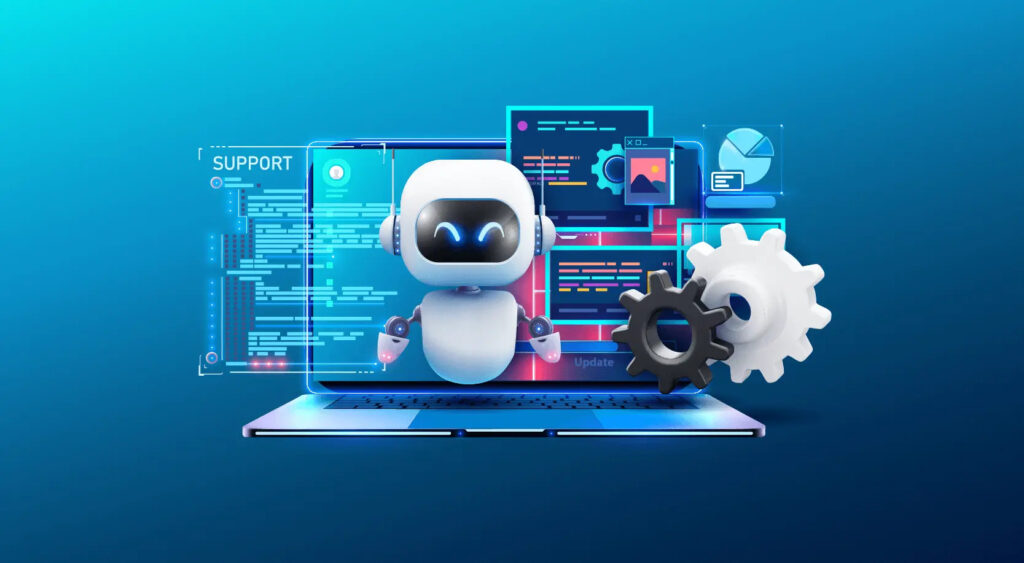As we step further into 2025, artificial intelligence continues to shape every aspect of modern life but one form of AI is taking center stage: Agentic AI. Unlike traditional AI systems that rely on fixed instructions and constant supervision, Agentic AI represents a new class of intelligent agents capable of autonomous decision-making, proactive behavior, and goal-driven execution.
From automating complex workflows to actively collaborating with humans, Agentic AI is fundamentally transforming how we work and how businesses operate. This blog explores the key ways Agentic AI is driving this shift and what it means for the workforce and enterprises in 2025.
What Is Agentic AI?
Agentic AI refers to artificial intelligence systems that can independently pursue defined goals with limited human oversight. At the core of these systems are AI agents, autonomous components that use machine learning and decision-making models to solve problems in real time.
According to IBM, agentic AI represents a shift from reactive tools to systems that are goal-driven, adaptive, and capable of taking initiative. These systems can plan, learn from experience, and respond intelligently to changing environments without constant human guidance.
In more complex settings, multi-agent systems are used, where each AI agent handles a specific subtask such as data collection, analysis, or execution. These agents collaborate through AI orchestration, which coordinates their actions toward a common objective.
By combining autonomy, goal orientation, and collaboration, Agentic AI is redefining how machines assist and augment human capabilities, ushering in a new era of intelligent automation in 2025 and beyond.
Impact on the Future of Work
As agentic AI becomes more capable and autonomous, it is not only reshaping how tasks are performed but also redefining the roles, skills, and structure of the modern workforce.

Redefining Roles and Human AI Collaboration
Agentic AI is not merely automating repetitive tasks; it is becoming an active collaborator in decision-making processes. Instead of treating AI as a passive tool, professionals are beginning to interact with intelligent agents as capable teammates. These agents can support a wide range of activities from brainstorming ideas and generating content to analyzing data, engaging with customers, and managing projects.
As a result, the human role in the workplace is shifting. Employees are increasingly focused on oversight, coordination, and strategic thinking while AI agents take over execution-heavy and data-driven responsibilities. This new dynamic promotes deeper collaboration between humans and machines and drives higher-quality outcomes.
Workforce Transformation and Emerging Skillsets
The rise of agentic AI is accelerating the need to reskill and upskill the global workforce. As AI becomes more autonomous, new roles and competencies are emerging:
- AI collaboration skills such as prompt design and agent coordination
- Technical literacy especially in interpreting and managing AI outputs
- Ethical understanding to ensure responsible use and supervision of autonomous systems
New job titles like AI interaction designer, AI ethicist, and agent trainer are gaining prominence. Rather than eliminating jobs, agentic AI is transforming them and creating opportunities for those willing to adapt to a technology-augmented environment.
Driving Productivity and Efficiency Gains
One of the most significant benefits of agentic AI is its potential to dramatically boost productivity. Unlike humans, AI agents operate 24/7 across languages, geographies, and time zones. Tasks that used to take days can now be completed in a matter of hours.
Real-world applications include:
- Marketing: AI agents continuously analyze customer behavior and launch tailored campaigns in real time
- Customer service: Intelligent agents handle inquiries autonomously reducing operational costs and wait times
- Engineering: AI copilots assist in debugging code generation and system testing with minimal human input
These advances free up human talent for higher-order thinking while maintaining speed and scale across operations.
Impact on Business Operations
Agentic AI is not only transforming internal workflows but also redefining how organizations make decisions innovate and lead in a fast changing global landscape.

Autonomous Decision Making
Agentic AI systems are increasingly being entrusted with complex decision making tasks that were traditionally reserved for human managers. These intelligent agents can:
- Manage logistics and inventory by forecasting demand and adjusting supply chains in real time
- Monitor and respond to shifts in market dynamics such as price fluctuations competitor actions or emerging trends
- Analyze live financial data to recommend investment opportunities or reallocate budgets for maximum return
This level of autonomy significantly shortens decision making cycles and enables businesses to act with speed and precision. By minimizing human error and reducing administrative overhead agentic AI improves consistency and operational efficiency
For instance a retail company might use AI agents to autonomously restock products based on real time point of sale data weather patterns and regional demand something that previously required hours of manual analysis and approval
Driving Agility and Innovation
In the competitive landscape of 2025 agility is a survival trait. Companies adopting agentic AI are gaining an edge by embracing intelligent experimentation and rapid iteration. AI agents can
- Run simultaneous AB tests across user segments regions or platforms and optimize outcomes in real time
- Tailor product features and marketing content to individual user behavior creating hyper personalized experiences
- Collect and synthesize competitive intelligence from reviews forums social media and industry news to anticipate market moves
This continuous loop of experimentation and feedback fosters a culture of rapid innovation. Businesses can now test ideas gather insights and launch improvements within days rather than months driving customer satisfaction and long term loyalty
For example in the SaaS industry AI agents can test UI variants for different user personas and auto deploy the most effective design increasing user engagement without needing constant human input
Changing Leadership and Strategy
The strategic role of agentic AI is evolving from operational support to executive decision making. Business leaders are beginning to integrate AI agents as part of strategic planning including
- Scenario simulation and forecasting to evaluate risks and outcomes of major decisions
- Organizational performance analysis to recommend process improvements or team restructuring
- Synthesizing vast datasets to support board level strategy sessions with evidence based insights
As a result leadership itself is changing. Executives now rely on AI not just for insight but for foresight leveraging predictive models to stay ahead of uncertainty. However with this growing reliance comes the need for robust ethical frameworks. Companies must ensure that AI driven decisions align with corporate values comply with regulations and maintain transparency
Forward thinking businesses are establishing new governance structures that include cross functional AI ethics committees internal audit tools for algorithmic decisions and training programs for AI literate leadership
Key Challenges and Strategic Considerations
As agentic AI becomes a core part of business and work processes organizations face several important challenges to fully leverage its potential.

Ethical and Governance Issues
With AI making autonomous decisions it is crucial to maintain transparency, accountability and prevent bias. Companies must develop clear governance frameworks that include ethical guidelines, continuous monitoring, and audit trails to ensure AI acts responsibly and fairly
Data Quality and Security
The success of agentic AI depends on high quality and reliable data. Inaccurate or incomplete data can cause flawed decisions while poor security can expose sensitive information. Businesses need to implement strong data management practices and robust cybersecurity measures to protect AI systems and maintain trust
Workforce Adaptation
The rise of agentic AI requires employees to develop new skills and collaborate effectively with AI agents. This shift can cause resistance and anxiety about job security. Organizations should provide ongoing training, foster transparent communication, and promote a culture that views AI as a tool for augmentation rather than replacement
Technical Complexity
Deploying agentic AI involves complex technical challenges such as integrating AI agents into existing systems ensuring scalability and managing coordination among multiple agents in real time. To address this, companies should adopt flexible architectures, prioritize interoperability, and seek partnerships with experienced AI providers for smooth implementation and maintenance
Final Thoughts
Agentic AI is rapidly changing the future of work and business by improving decision-making, increasing efficiency, and fostering innovation. To fully benefit from this technology, organizations must address ethical challenges, ensure data quality, prepare their workforce, and manage technical complexities.
스핑크스 is committed to helping businesses navigate this transformation with advanced AI solutions tailored to their needs. Contact Sphinx today to learn how we can support your journey toward harnessing agentic AI and staying competitive in 2025 and beyond.




CEO - Son Le
기타 블로그
블로그
AI Automation: How It Works, Benefits, and Best Practices
As organizations face increasing operational complexity, traditional automation alone is no longer sufficient to sustain efficiency and competitiveness. Businesses today require systems that not only execute predefined tasks but also learn, adapt, and make intelligent decisions. This shift has positioned AI Automation as a transformative force, enabling enterprises to automate...
자세히 보기블로그
App Design for 2026: Trends, Techniques, and Tools
As digital products become more deeply embedded in everyday life and enterprise operations, app design in 2026 is no longer about visual appeal alone. It is a strategic discipline that combines user psychology, business objectives, platform capabilities, and emerging technologies. Modern app design must anticipate user intent, adapt to contextual...
자세히 보기블로그
10 Types of Outsourcing: How to Choose the Best One
Outsourcing has become a strategic lever for businesses seeking agility, cost efficiency, and access to specialized expertise. However, not all outsourcing models deliver the same value, and choosing the wrong approach can lead to operational friction, misaligned expectations, and limited returns. From traditional staff augmentation to fully managed services and...
자세히 보기기타 블로그
서비스
IoT 개발
SphinX는 최첨단 IoT 개발 서비스를 제공하여 디바이스를 원활하게 연결하고 혁신적인 솔루션을 제공합니다.
테마서비스
블록체인 개발
우리는 신뢰할 수 있고 안전한 블록체인 기술을 처음부터 설계하는 데 매우 능숙하며, ...
테마서비스
ERP 및 CRM 개발
필요한 ERP & CRM 개발 서비스! 비즈니스 프로세스 간소화 및 조직 효율성 향상....
테마기타 블로그
서비스
IoT 개발
SphinX는 최첨단 IoT 개발 서비스를 제공하여 디바이스를 원활하게 연결하고 혁신적인 솔루션을 제공합니다.
테마서비스
블록체인 개발
우리는 신뢰할 수 있고 안전한 블록체인 기술을 처음부터 설계하는 데 매우 능숙하며, ...
테마서비스
ERP 및 CRM 개발
필요한 ERP & CRM 개발 서비스! 비즈니스 프로세스 간소화 및 조직 효율성 향상....
테마